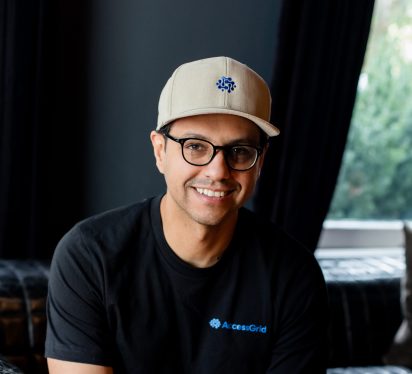Auston Bunsen found himself with more free time after his company, QuickNode, grew to a certain size. QuickNode, a blockchain developer platform founded in 2017, has raised approximately sixty million dollars in funding according to PitchBook. Bunsen began considering the idea that people might want to unlock their doors using their iPhone. He eventually met with Apple, and they decided to support his goal of helping companies integrate the power of Apple Wallet into their access systems.
Bunsen left QuickNode in October to focus on his new venture, AccessGrid. This company builds APIs that allow businesses to manage digital key fobs directly within Apple and Google wallet platforms. The technology works even when an iPhone is locked, automatically syncs to an Apple Watch, and, for iPhones, continues to function even if the phone’s battery is dead. AccessGrid launched officially in April and recently announced a 4.4 million dollar seed funding round led by Harlem Capital.
Bunsen believes the access control industry is outdated, stuck in the late 1990s. Many current systems operate on-premises, disconnected from the cloud, and use unencrypted communications and ID card technologies that are easily compromised. AccessGrid addresses this with an API that issues uncloneable credentials using encrypted payloads, which can be instantly revoked via the cloud. The company aims to bring physical security systems up to modern standards.
Cybersecurity is a critical consideration for such a product. Bunsen states the company uses military-grade encryption and dual-encryption protocols. They also implement multi-factor authentication for all server access and adhere to other standard cybersecurity practices.
Unlike his experience building QuickNode with three co-founders, Bunsen is developing this product alone. He described the fundraising process as a distraction, emphasizing that serving customers is the primary purpose. He met Henri Pierre-Jacques, the managing partner at Harlem Capital, through friends in Miami. Other investors in the round include Marell Evans from Exceptional Capital and Maya Bakhai from Spice Capital, connections from his time at QuickNode. AccessGrid also participated in the HF0 accelerator, receiving its first check from that program.
AccessGrid competes with other startups like SwiftConnect and Sharry. Bunsen differentiates his company by stating it does not sell service contracts or middleware to interface with existing hardware. He describes AccessGrid as a pure play, API-only developer platform, not an end-user application with API features.
The new seed funding will be used to enhance the application’s security and to develop new products and features. The company plans to expand into automobile access products in the near future. Bunsen’s ultimate vision is to upgrade every access control reader in the United States. He hopes to create a world where everything that typically requires a key opens automatically when you are nearby. The goal is to make accessing the places you belong faster, safer, and more seamless for both people and machines, ensuring you never lose your key because it is always with you.

